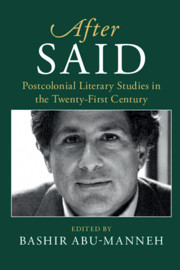'Edward Said (1953–2003) was one of the most powerful and influential thinkers of his era as well as a leading advocate of the Palestinian cause.'
Source: Times Higher Education
'The ideas within this book will find traction with students, graduates, and senior researchers in postcolonial studies, Victorian and modernist studies, cosmopolitan and refugee studies, as well as with political theorists. This absorbing collection of essays engages with Said's core concepts and outlines his achievements. … The admirable strides in After Said to aright or modify some of Said’s claims, to my mind, empower future scholars of empire to take Marxism more seriously.'
Rena Jackson
Source: Jacobin
'After Said opens innumerate directions for future research and development. As such, it succeeds in its goal of showing, in astounding detail, nuance and scope, the many possible directions of postcolonial studies after Said.'
Jonathan Lench
Source: Journal of English Studies
‘This volume, then, extends beyond the specific legacy of Said and addresses postcolonial theory more generally. Provocations feature across the series, which is intended to appeal to the non-specialist but also frequently contains interpretations and applications of interest to the practising cultural critic. The standard is high and the topics are diverse.'
Robin Sims
Source: The Year's Work in Critical and Cultural Theory
‘Each chapter is distinctive either for being informative on some of the elements of Said’s life, research and political career, or for trying to push forward the debate on some of the problems Said emphasized, or missed, to develop in a more balanced theoretical advance towards new directions.’
Sanja Petkovska
Source: Marx and Philosophy Review of Books
‘… After Said is an important and timely intervention into postcolonial studies and academic convention. As such, it is well worth reading.’
Omar Zahzah
Source: Journal of Palestine Studies
‘… an important, meticulously researched model for postcolonial and comparative cultural/literary studies.’
Bryant Scott
Source: Houston Review Of Books



